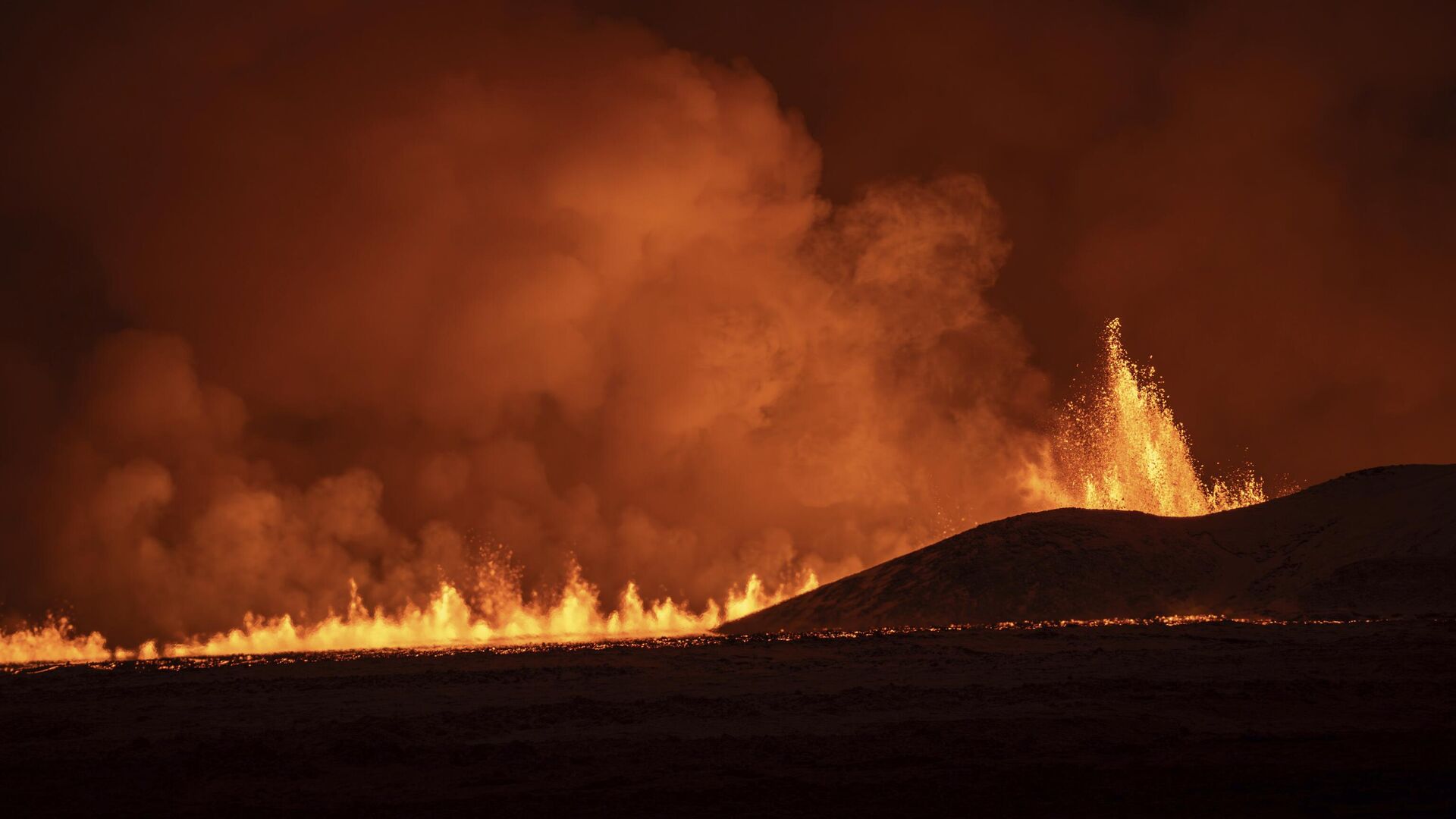Gas Pollution Warning Issued for Reykjavik After Icelandic Volcano Erupts

© AP Photo / Marco Di Marco
Subscribe
Icelandic authorities confirmed late Monday that an eruption had been recorded on the Reykjanes Peninsula, triggering officials to launch into evacuation efforts and prepare for possible lava flows. Roughly 4,000 people were evacuated from the fishing town of Grindavik last month following weeks of intense earthquakes and tremors.
Latest details released by the Icelandic Met Office has revealed that gas pollution is now threatening Iceland's capital of Reykjavik with fumes that may soon reach the capital.
Authorities revealed that the dangerous fumes may potentially reach the capital between late Tuesday and early Wednesday.
According to the Icelandic Met Office, at 18:30 UTC there had been about 320 earthquakes since the eruption first began. The largest of which had a magnitude of 4.1 and occurred at 23:25 on Monday. But after midnight, the seismic activity decreased, the agency said.
“At the time of publication, the volcanic plume is drifting from the west and northwest,” the agency wrote in an update at 14:30 UTC on Tuesday. “Gas pollution might be noticeable in Vestmannaeyjar today, but not elsewhere in populated areas. According to the weather forecast, gas pollution might be detected in the capital area late tonight or tomorrow morning.”
The lava flow, the agency added, is estimated to be about “one-quarter of what it was when it first erupted.”
“The size of the volcanic eruption at Sundhnúksgígar continues to diminish. The lava flow is estimated to be about one-quarter of what it was at the beginning of the eruption on 18 December, and a third of the original fissure is active. The lava fountains are also lower than at the start of the eruption, reaching about 30 meters at their highest,” they wrote in their update.
Authorities added that the eruption “does not pose an immediate threat to people” although scientists will continue to take measurements to determine if new subterranean magma is flowing to the eruption site. While the lava appears to be flowing in a safe direction, Katrin Jakobsdottir warns that this could change within a short notice.
For the time being, the volcanic eruptions pose no threat of generating ash clouds because they are physically unable to, according to Dr. Evgenia Ilyinskaya, an associate professor of volcanology at Leeds University. "At the moment it seems not to be threatening, although it remains to be seen," she cautioned.
Bjarni Benediktsson, Iceland’s foreign minister, wrote on X that “there are no disruptions to flights to and from Iceland, and international flight corridors remain open.”
A volcanic eruption has started on the Reykjanes Peninsula. The eruption is about 3,5 km long close to Sundhnúka, north of Grindavik where evacuation orders have been in place. There are no disruptions to flights to and from Iceland and international flight corridors remain open. pic.twitter.com/w9YB5wa6HR
— Bjarni Benediktsson (@Bjarni_Ben) December 19, 2023
People in Iceland have been anticipating volcanic activity for weeks as the region around Reykjavik experienced increasing seismic activity since late October. An eyewitness told a British news company that when the eruption occurred half of the sky had been “lit up in red.”
Eruptions are not uncommon in Iceland. There have been four eruptions on the Reykjanes Peninsula alone in the last two years. In 2010, the Eyjafjallajokull volcano erupted causing plumes of ash to stretch over the sky. The eruption did not result in any fatalities, but caused a serious impact to Europe’s air travel that lasted for more than a week.

